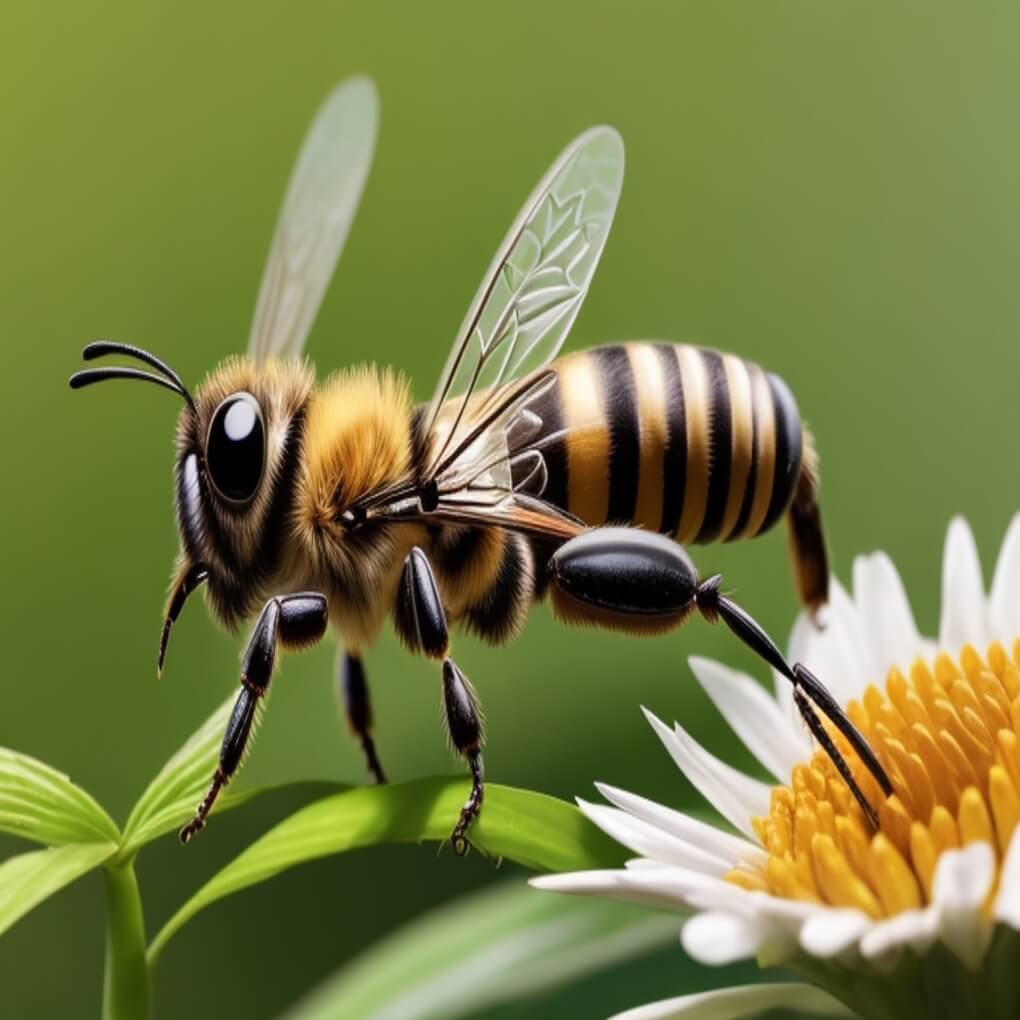Amidst the gathering of world leaders, dignitaries, and corporate giants at the recent Asia-Pacific Economic Cooperation (APEC) events in San Francisco, a Santa Cruz computer scientist, Omer Davidi, made an impactful presence. As the CEO of BeeHero, he addressed the APEC CEO Summit, shedding light on the critical role of bees in agriculture and how his company is leveraging artificial intelligence (AI) and innovative bee monitoring techniques to bolster crop yields sustainably.
The bee crisis and the need for pollinators
Omer Davidi highlighted the urgency of the global bee crisis, emphasizing the necessity to expand food production to meet the demands of a growing population. Bees, being the most efficient pollinators, play a pivotal role in this endeavor. However, bee populations worldwide are under threat due to factors such as modern farming practices, pesticide use, biodiversity loss, and climate change.
The United Nations Food and Agriculture Organization has warned that the decline in bee populations poses a significant risk to plants crucial for human well-being and livelihoods. Approximately three-quarters of crops, which provide 90% of the world’s food, depend on bee pollination.
BeeHero’s innovative approach
BeeHero, founded in Israel in 2017, by Omer Davidi, second-generation beekeeper Itai Kanot, and systems engineer Yuval Regev, is at the forefront of addressing this crisis. The company equips beekeepers with advanced data-gathering sensors to create “smart” beehives. Additionally, BeeHero provides AI-powered consulting services to farmers, helping them optimize crop planting, maintenance, and irrigation to maximize honey bee pollination.
In recent years, BeeHero’s growth has been nothing short of remarkable, earning them a place on CNBC’s “Disruptors 50” list. The company has gained recognition for its innovative approach to sustainable agriculture and pollinator conservation.
Impressive growth and impact
BeeHero’s impact is substantial. The company announced a remarkable 300% year-over-year revenue growth in December, along with securing $64 million in total funding, including support from food industry giant General Mills. Davidi proudly stated that BeeHero is now the largest “pollination provider” in the United States.
The APEC connection and global outreach
During the APEC CEO Summit, Omer Davidi had the opportunity to discuss BeeHero’s mission with California Governor Gavin Newsom. He extended an invitation for the governor to witness their solution in action during the upcoming almond-pollination season in February.
Davidi shared encouraging statistics from farms employing BeeHero technology, revealing a 27% reduction in bee colony mortality rates. The positive impact extends to various crops, including almonds, apples, cherries, canola berries, and sunflowers.
BeeHero’s sensor technology
At the core of BeeHero’s mission lies the innovative use of sensor technology. The company has distributed 300,000 sensors to beekeepers, primarily in the United States but also across three other continents. These sensors provide critical data on factors like temperature and humidity, offering insights into bee health and hive conditions. Additionally, they monitor the sounds generated by bees, which can be analyzed to identify issues such as weak or stressed colonies.
Future prospects and challenges
While BeeHero’s sensor technology has revolutionized beekeeping and agriculture, some experts suggest further enhancements. Bee researcher Alison McAfee at North Carolina State University sees potential in developing real-time mite-counting devices to combat the varroa mite, a significant threat to bee colonies. Davidi believes that BeeHero’s sensors can already detect major mite infestations through changes in bee behavior and sound, hinting at the possibility of real-time mite monitoring in the future.
BeeHero’s remarkable journey from its inception in Israel to becoming a leader in sustainable agriculture and pollinator conservation in the United States is a testament to its commitment to addressing the critical issue of declining bee populations. By harnessing the power of AI and innovative sensor technology, BeeHero is not only helping farmers increase crop yields but also contributing to the preservation of these vital pollinators.
As the world grapples with the interwoven challenges of food security, climate change, and biodiversity loss, the spotlight on companies like BeeHero at high-profile events like APEC demonstrates the growing recognition of the indispensable role played by bees in global food production. BeeHero’s mission serves as a beacon of hope for the tiny pollinators and the future of agriculture.





